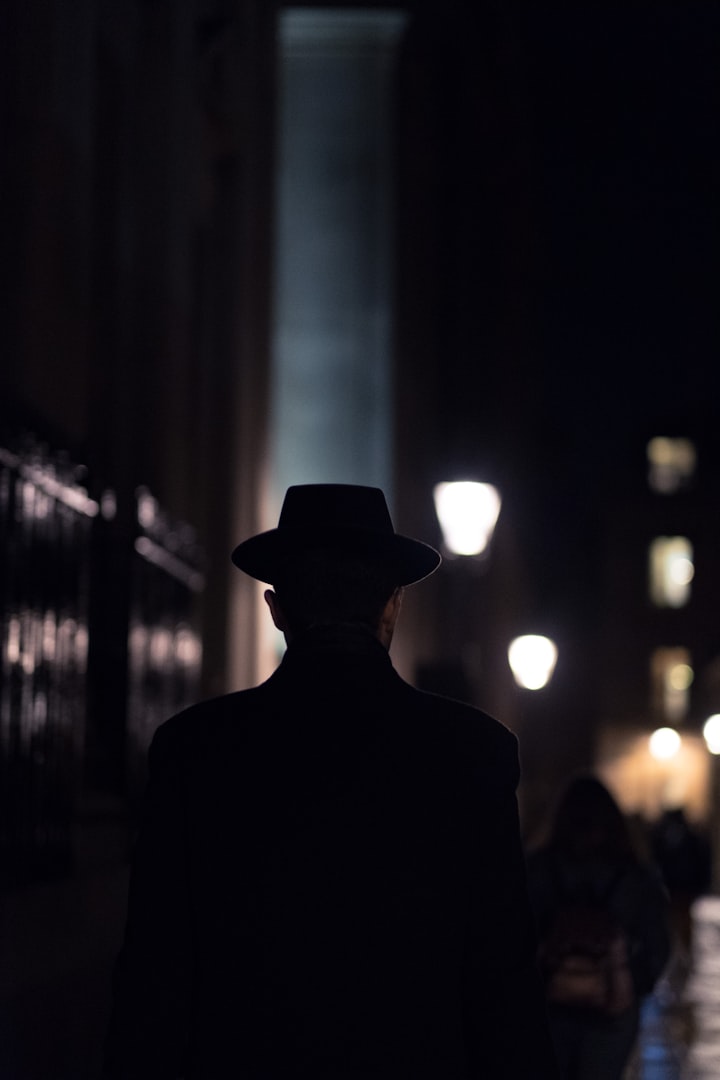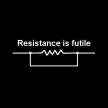Paulie Oxenfree
Hide and Seek: the Long Game

The sound of the lock echoed within the darkened hallway of the small apartment, the uncomfortable crack of a rough solution to a simple problem. It had been protesting as the person on the other side inelegantly tooled the tumblers into position until the lock gave up its fight and forfeited to the more persistent opponent. Despite years of experience and practice convincing his logical mind that it was an essentially consequence free exercise, this part always made him uncomfortable: stepping, uninvited, into the darkness of someone else’s home always triggered a nervousness in his belly that was a thrilling as it was nauseating. He wasn’t supposed to be here, and there was something enthralling about that.
A menagerie of modern comforts glimmered jewels of LED light into the space, not bright enough to add significant detail, but a hard enough contrast that it interfered with his eyes adjusting to the dark, and he sighed a frustrated sound before pressing the door silently into its frame behind him, and clicking on a very dim pocket flashlight. A mirrored closet door on his left flashed with his reflection, and he paused to take himself in. It was fall, so the coat wouldn’t necessarily stick out, but the fact that its classic whitened-coffee hue matched the broad brimmed fedora would draw more attention than he probably needed it to. The black pants, gloves, and hat band brought the whole ensemble together rather sharply he thought, accentuating his streamlined look and five-o’clock-shadow, but in a town as big as this one, someone would just take him for any other upper-management sort on their way to somewhere.
He straightened his jacket, tucked the hat lower, and then carefully reached a hand out to slide the mirrored panel open on its hanging track. The closet wasn’t empty, but a number of empty hangers to one side and a wide gap in the shoe rack told him that, while the occupant hadn’t wanted to leave the place looking un-lived-in, they had taken the time to pack the articles they preferred. Again, the frustrated sigh: he was here too late, and she’d moved on. Again.
Despite having missed her, the game was still on. He considered turning on the lights, but thought better of it; just because his quarry wasn’t in the suite did not mean she hadn’t left any presents behind. Past the hall closet was the door to the bathroom, left casually ajar, and he tucked inside. Behind the mirror, an array of bottles and boxes put him in mind of the causal over the counter section of the pharmacy. Here and there, small crescents showed where all the bottles that had names on them might have sat, collecting humidity from the shower’s steam and leaving dried remnants behind. The only thing that stood out as he discounted everything that was left on the shelves was a small, unremarkable bottle of exquisitely familiar perfume, which he cupped in the palm of his gloved hand, smelling it through the glove leather, letting himself remember.
The evening had been wonderful, full of wine, music, and entertainment, a gala for the birthday of a prince whose family reigned across a million miles of desert, rich with the black blood of industry. The best part of such soirees was not the array of the famous and the infamous who gathered to toil in their political games, but the greater than average compliment of nameless nightlife who made up the spy community surrounding such an affair. Faces of friend and foe wore invisible masks, their bare skin layered in an amusement of lies, as intimately familiar intelligence operatives introduced themselves with carefully crafted aliases. No one worked at these events, unless they had to: they were too public and too transparent to get anything done, so they took their opportunity to socialize on a sort of holy ground, where espionage was in poor taste. He’d been taking in the company of a particularly dangerous foreign operative who would have normally killed him on sight, when a delicate, familiar scent stopped him mid-sentence…
There was nothing else in the bathroom, a fact he confirmed with a quick sweep before moving on. He made his way back into the hall and shone a light over the walls there, taking in the framed photos strung along at appropriate intervals, with enough casual disarray to make them easy to ignore. The people in the photos were, almost universally, boring, unrelated stock people. Here and there, he recognized one or two from old catalogues or promotions, even, as he’d seen them before on other investigations. He considered what it was like to live in circumstances like this. He hadn’t always done the work he did, nor had the woman he was pursuing: once, like anyone else, they’d been children, living with their families, in comfortable homes in a quiet hometown. They’d grown up with pictures on the walls that showed the smiling faces of relatives, moments of accomplishment or captured memories that had meaning.
They’d grown up together, in fact, in the same town, next door neighbors. When he was eight, he’d played with her older brothers as a tagalong runt, the unwanted third wheel. By the time he was twelve, they’d given up pretense of fitting in to their own cliques, and gone directly into the petty larceny and trespassing that came from realizing they were both too clever to be amused by cooking ants or fishing or biking endless circles around town. They came up with a secret code language together, which his father had unsuccessfully tried to beat out of him when he’d caught them passing notes, and they knew every secret crawlspace, forgotten attic window, unlocked cellar, and hollow tree in the county. By sixteen, while most people considered them inseparable, they were at their best when they were apart: they’d taken on an exaggerated form of hide-and-seek, layering on new rules and strategies, until sometimes days or even weeks went by without one finding the other as they slipped into the cracks of society and blended in.
The draft hadn’t seen fit to change much of that, only opened up the playing field. He’d known, of course, that she’d followed him in to the service some years after starting college, but her letters hadn’t told him she’d gone into military intelligence. He’d earned a black mark from his foreign operative that night, dropping her like a hot coal and chasing a scent through a crowded room, but that hardly mattered. When he found her, they were alone, on a balcony which was hidden behind a drapery someone had left unbound in their organization of the soiree. She had a glass of wine for him, and together they watched the fireworks from far too close as the little sheik rang in his ascent to manhood. From then on, they played the game any time they crossed paths, and they made excuses to take assignments which enabled this. Right now, he was it.
At the end of the hall was the kitchen, and he wondered where, and when, she would have found time to shop, and whether anything left in the cupboards might give him a clue to her lifestyle; the biggest surprise was the bowl of food on the floor by the pantry. It was tiny, attached to the water dish directly, and had obviously, actually, been used. This was new: he’d never known her to have pets, and this cat, by the look of it, would be the kind of personal intimacy he couldn’t imagine her tethering herself to, and the extent to which it was out of character both thrilled him, and struck him cold with uncertainty.
Opening the pantry didn’t give him anything new, either. Standard canned goods the sort one might donate to a food bank rather than eat themselves stocked the shelves there, and a mixed array of dishes, probably picked up in bulk at a second-hand store, gave up no interesting details, although he carefully overturned each one and leafed between their layers. Unused second-hand appliances filled space on top shelves, deadening the storage with their bulk, making it easy for him to discount anything interesting there, and the oven was as immaculate as the day it had been last cleaned—obviously she didn’t use it to prepare whatever it was she ate.
His brow furrowed as he shone his flashlight down into the kitchen sink, which was pristine, to find a knot of twine tied around the drain catch. Pulling a multi-tool out of his side pocket, he unscrewed the catch easily, and fished a locker key up from where it dangled in the drain. He recognized the green rubber casing on it from the train station downtown, and made a note to check for a matching locker when he left.
There wasn’t much to the living room: there was no television set, which would stand out in most circumstances, but having the bulky black frame in this small space would probably have it dominate the setting, and besides, most people watched their shows online these days and a laptop would serve a single professional regardless. Instead, the only thing he found really stood out for him in the sparse setting was a guidebook to famous restaurants across the continent, with a number of the best destinations circled. He recognized each as being a place they’d danced their dance, a tradition when one changed from being ‘it’, save the one that had been running through his mind all night, which stuck out all the more for being unmarked. He tucked the detail away, and moved to check the last unvisited place in the suite.
Opening the bedroom door, the first thing he noticed was the large brown box, wrapped in butcher’s paper, on the bed. It dominated the small space in the dark, and there was an envelope next to it on the precisely made bedspread. A quick investigation found nothing but decoy clothes in the drawers and closet, and empty bedside tables. He tugged the twine on the box, which fell away easily, letting the drape of wrapping paper unfold itself: it had been loosely packed, and he immediately saw why when it came unbound. Reaching inside, he scooped a careful hand under the belly of the small kitten at the bottom, bringing it up out of the clean box as it appealed with a tiny mew. It hadn’t been here long enough to need to make litter: she couldn’t have been gone longer than an hour or two. He ran his fingers appreciatively through its fluff of orange fur, cradling the purring creature, just old enough to have been weaned, against the collar of his jacket. Picking up the envelope, he pulled a small card from inside, and read:
“P. Her name is Daisy, and I think she needs a forever home. You should know where to look, I have a place in mind. M.”
Paul stood in shock, all the nuance of spycraft obliterated in an instant. Of all the ways he’d expected their games of hide and seek to end, this was not it: spies didn’t just settle down one day and call the whole thing off, but here he was, holding the most blatant invitation he could have received against his suddenly pounding heart. Mona was calling him home: a cat was a commitment, the kind of thing she'd only ever brought up when talking about settling down. His head spun, and he realized the card was scented with her perfume. A few minutes later, he was walking cheerfully along the cobbled streets towards the north square, a kitten carefully bundled in his coat next to a vial of pleasant and familiar perfume, a happy skip in his step. He knew where he was going, and by the key in his pocket, he had an enthralling game of Strangers on a Train to look forward to in getting there.
About the Creator
Shiv MacFarlane
I write because I live.






Comments
There are no comments for this story
Be the first to respond and start the conversation.